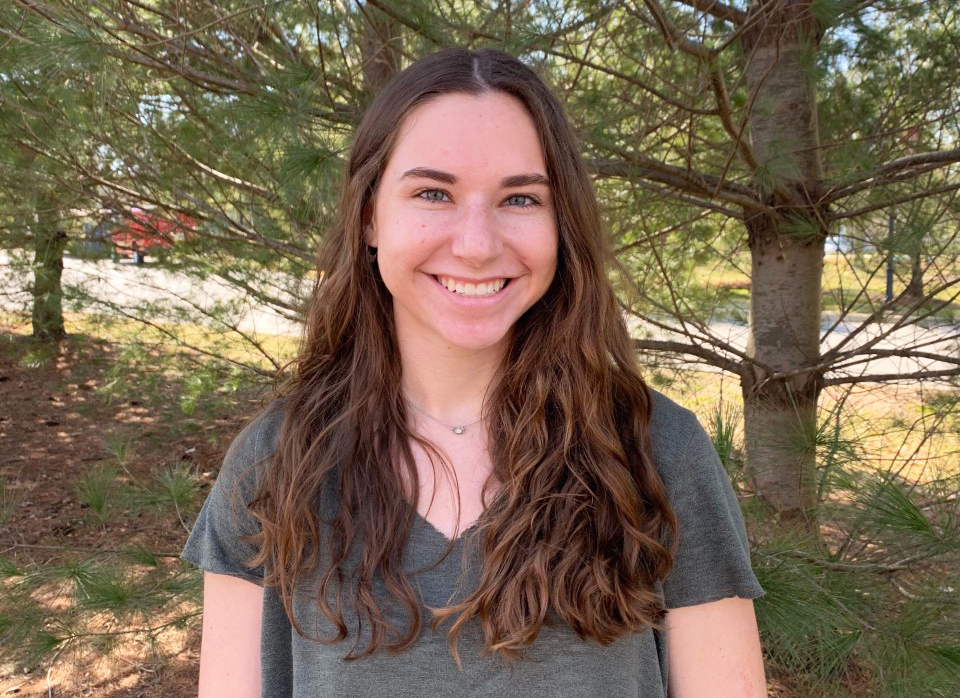Environmental Fast Track
Environmental Science Major Admitted to 3:2 Program at Duke University’s Nicholas School of the Environment

Sammy DiLoreto '22, an environmental science major from suburban Philadelphia, has chosen to accelerate her academic track towards a master's degree in environmental management. While other Washington College undergraduates have completed post-graduate studies in environmental management at Duke, DiLoreto is the first Washington College student to take advantage of the 3:2 program offered through a partnership established in 2015 with the university's Nicholas School of the Environment.
She'll earn her undergraduate degree and a master's degree in five years.
This fall, DiLoreto will begin her studies at Duke with a concentration in ecotoxicology and environmental health, a small program that will allow her to further explore her interest in environmental chemistry. While studying remotely last fall, DiLoreto devised a research project—funded by the Cater Society of Junior Fellows and conducted in collaboration with W. Alton Jones Associate Professor of Chemistry and Environmental Science Leslie Sherman—that considers whether vehicle non-exhaust emission causes soil contamination.
“I had joined the Cater Society in the spring of 2020 in hopes of applying for a grant to pursue environmental research during the Environmental Studies in Ecuador field course offered by Assistant Professor of Environmental Science and Studies Rebecca Fox,” DiLoreto says. “When that trip didn't happen because of the pandemic, I was searching for another research topic. Then one day, while I was doing an at-home lab in my backyard, I noticed a red residue on my shoes. My dad thought it might be iron residue from cars and trucks traveling on the turnpike nearby. Professor Fox thought there might be something to it and suggested that I work with Professor Sherman, who is expert in soil chemistry.”
Sherman says DiLoreto developed her research question completely on her own and was creative in her approach to experimental design. “Based on several Zoom meeting in which we discussed her initial plans, a thorough literature search on her part, and material she learned in Dr. Fox's Field Methods course, Sammy came up with a very good design,” says Sherman.
DiLoreto is now back on campus and working in the lab, analyzing the soil samples she collected from her backyard.
“I have really enjoyed working with Sammy on her Cater research,” notes Sherman, “and I applaud her organization and her commitment to completing an independent research project. Given the tight schedule with the dual-degree program, students pursuing this option do not do an SCE (Senior Capstone Experience) project. So, it is wonderful that Sammy has had this opportunity to conduct research thanks to the Cater Society.”
For someone whose favorite childhood pastime was looking for newts after a rainstorm at her family's mountain house, Washington College was the perfect place for her to study. “I found WAC and saw that there were so many opportunities for students interested in the environment. I immediately knew that I would be an environmental science major and knew that I wanted to pursue the Duke program. And not only have I enjoyed the fieldwork in my courses here at WAC, I've had such great experiences in the labs as well.”